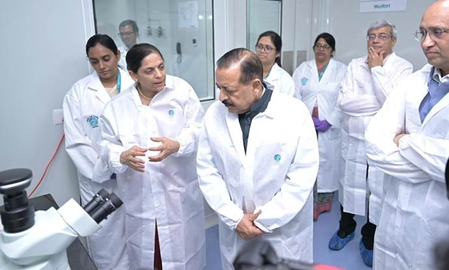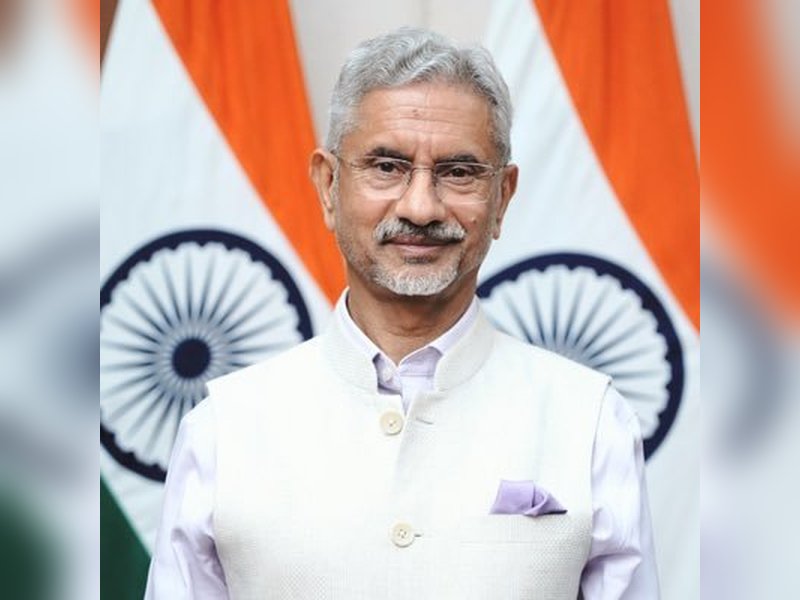New Delhi, April 24 (IANS) Union Minister Dr Jitendra Singh on Thursday inspected various facilities at the BRIC-inStem facility and reviewed ongoing clinical trials in collaboration with premier medical institutes and hospitals, including the landmark first-in-human gene therapy trial for Haemophilia conducted with CMC Vellore.
Calling it a “milestone in India’s scientific journey,” the minister hailed the institute’s contributions to preventive and regenerative healthcare.
During his visit, Dr Singh underscored the strategic importance of biotechnology in shaping India’s future economy and public health infrastructure.
“This is not just about science—it’s about nation-building,” he said, commending the Department of Biotechnology’s (DBT) recent successes and its emergence from relative obscurity into national relevance.
India’s biotechnology sector has seen an extraordinary leap, growing 16-fold in the past decade to reach $165.7 billion in 2024, with a vision to touch $300 billion by 2030.
The minister credited this growth to enabling policy reforms, including the recently approved BIO-E3 Policy that aims to boost economy, employment, and environment through biotechnology. “We now have over 10,000 biotech startups compared to just 50 a decade ago,” he pointed out.
He praised the creation of the Biotechnology Research and Innovation Council (BRIC) that unified 14 autonomous institutions under one umbrella.
“BRIC-inStem is at the cutting edge of fundamental and translational science,” he said, highlighting innovations like the germicidal anti-viral mask during the pandemic and the ‘Kisan Kavach’ that protects farmers from neurotoxic pesticides.
“The recent pandemic taught us that we must always be prepared. Facilities like this will help us stay a step ahead,” Dr Singh stated.
The minister also praised the newly launched Centre for Research Application and Training in Embryology (CReATE), which addresses birth defects and infertility by advancing developmental biology research. “With about 3 to 4 percent of babies born with some form of defect, this centre is vital for improving maternal and neonatal health outcomes,” he said.
Calling for greater collaboration between scientific and medical institutions, he suggested that BRIC-inStem explore MD-PhD programmes, integrate more with clinical research, and enhance visibility through coordinated communication strategies.
--IANS
na/












